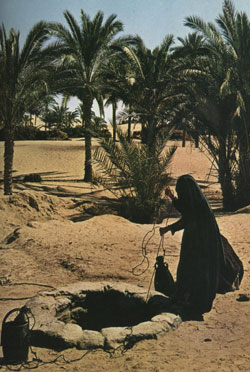 With all the strife and struggle in our headlines these days, we can listen to news reports and quickly feel overwhelmed. None of us can fix all that’s wrong, and there’s frustration in realizing that.
With all the strife and struggle in our headlines these days, we can listen to news reports and quickly feel overwhelmed. None of us can fix all that’s wrong, and there’s frustration in realizing that.
This morning I felt the same crushing helplessness during my prayer time.
Sitting down with God in the corner of my bedroom each day, I put several things on my lap: a clipboard filled with blank paper, an array of scribbled post-it notes in all colors and sizes (prayer requests), a pen, pages of Scripture verses grouped by topic, and my daily devotional book by Charles Spurgeon. A cup of coffee is within reach, and maybe a rice cake with peanut butter on it, at least briefly.
As I start praying, it always impacts me that God is willing to listen and, more astoundingly, to answer prayers. But something else is always present, too. It’s a determination to “do business with God” over my own sin. He never fails to let me know what needs purging and deals with me accordingly. Sometimes the whole hour is spent on that. But most mornings there’s time to sort through the post-its and pray a wide variety of requests over the names and needs on them.
This morning was that kind of prayer time, and I looked forward to claiming biblical promises over the various needs, and listening for God’s directions on how to pray. But something unexpected happened right after I got started.
Reading the serious nature of the requests on the notes, one after another, began to swamp me. Each tiny piece of paper held weighty problems seemingly much too heavy for it, and as I handled the notes, their burdens jumped off the papers and onto me. Trying to prioritize them, my mind swirled like it was in a hurricane of sorrow. Just like with the turbulence in our headlines, I knew I couldn’t fix anything on those notes.
I started to cry, wishing I hadn’t put my mascara on before sitting down to pray. Using the paper napkin that had been under my rice cake, I began dabbing at tears until it was soaked, and then just let the other tears fall. What was happening? I’d prayed for many of these same people in their same dilemmas on multiple occasions in the past without “losing it.”
What had happened to my confidence in God’s ability to do what I couldn’t? Was I doubting he could affect change in the lives of the people I was praying for? Had I forgotten that it was God’s job to “fix” things, not mine?
But God was, as always, up to something completely different than what I thought. And he used a 65 year old photo to let me know what it was.
(Concluded tomorrow)
“God does great things beyond searching out. Who will say to him, ‘What are you doing?’ ” (Job 9:10,12)




